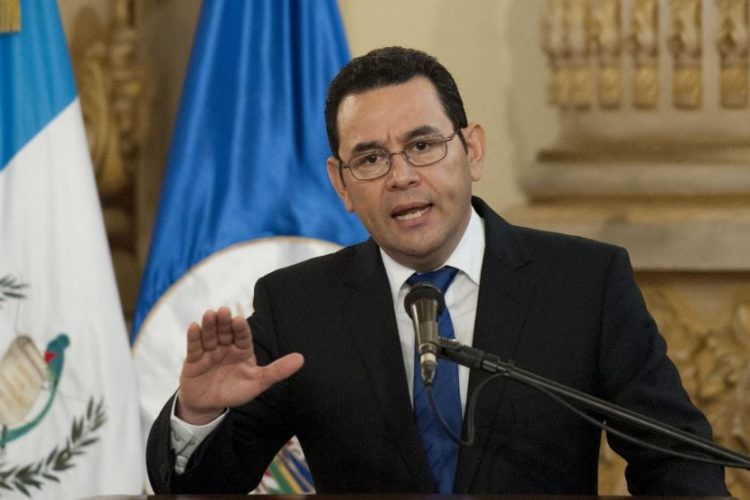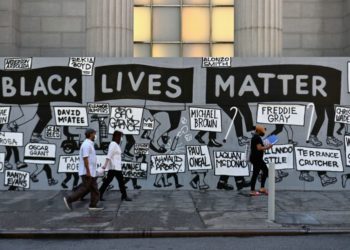Guatemala’s constitutional court has granted an injunction blocking President Jimmy Morales from signing a controversial deal with the United States that would oblige the Central American country to welcome migrants, at least in the short term.
Morales, who was under pressure at home not to seal the deal, called off White House talks with Donald Trump set for Monday hours before the court’s ruling late Sunday.
The meeting in Washington was pushed back due to “speculation” about the signing of a possible deal and to await the decision of the court on legal actions filed over it, the Guatemalan government said in a statement.
Late Sunday, the constitutional court granted a provisional injunction to prevent Guatemala from becoming a “safe third country.”
The court’s ruling indicated any such agreement should first be approved by lawmakers.
As a “safe third country,” any migrants entering its territory on the way to the United States would be obliged to remain in Guatemala while they attempt to seek asylum.
U.S. law allows people to seek asylum no matter how they get to the U.S. — unless they pass through a “safe third country” first.
But:
– There is no legal definition of how countries are classed as “safe”
– Canada is the only country that ever signed a “safe third country” deal pic.twitter.com/uTEwcrGWF5— AJ+ (@ajplus) July 15, 2019
Some U.S. media reports suggest the terms of the deal, if the Trump administration gets its way, could prevent most migrants from ever seeking asylum on American soil.
“There was something concrete to sign, but public pressure was key to ensuring that this aberration did not occur,” said political analyst Luis Linares.
Many migrants from Honduras and El Salvador cross Guatemala, one of the poorest countries in Latin America, to reach Mexico on their route to the U.S. border.
On Monday, the Trump moved to ban asylum for migrants crossing Mexico to the border.
Large-Scale Opposition
The Guatemalan government had announced Morales’ visit last week, saying it would touch on immigration and security issues, but never offered details about what he and Trump would discuss.
Guatemalan officials did acknowledge that talks on a “safe third country” agreement were underway, leading to swirling speculation.
Those opposed to such a deal say they do not want Guatemala to become a major destination for migrants heading to the U.S., especially given that Guatemalans are often among those making the journey.
Former foreign minister Edgar Gutierrez told the daily El Periodico that the deal would have made Guatemala “the biggest concentration camp in history.”
The deal has already been rejected by the two candidates vying for Guatemala’s presidency next month, who said the deal would provoke a humanitarian crisis, as the country is not equipped to welcome large numbers of migrants.
Center-left former first lady Sandra Torres will face off against conservative candidate Alejandro Giammattei on August 11 for the right to succeed Morales in January.
In March, Trump’s administration suspended aid to the “Northern Triangle” countries of Guatemala, El Salvador and Honduras after the Republican leader said they were not doing enough to stem the flow of migrants to the U.S.





















